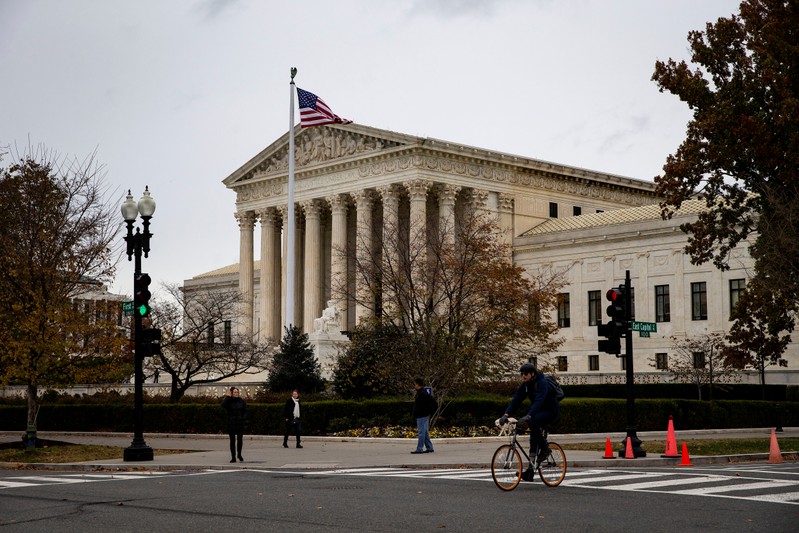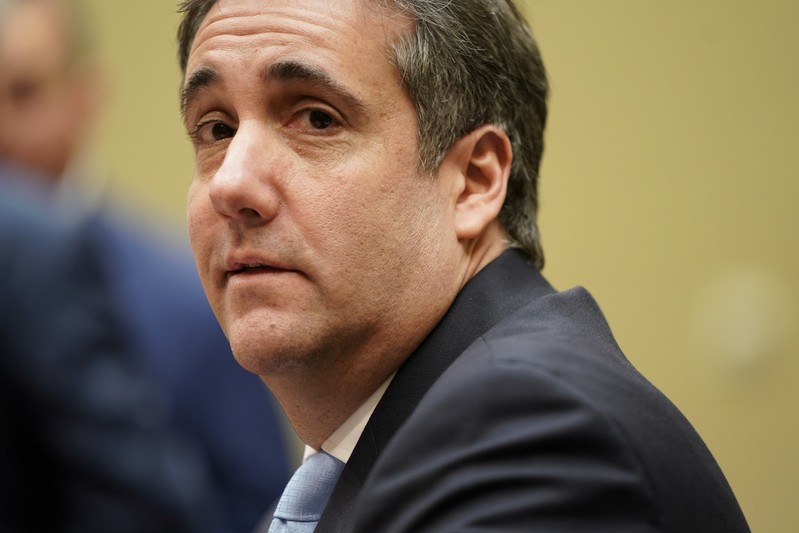
FILE PHOTO: A man rides a bicycle past the Supreme Court in Washington, U.S., November 13, 2018. REUTERS/Al Drago/File Photo
February 27, 2019
By Lawrence Hurley
WASHINGTON (Reuters) – The U.S. Supreme Court on Wednesday revived a lawsuit by villagers in India seeking to hold a Washington-based international financial institution responsible for environmental damage they blame on a power plant it financed.
The justices ruled 7-1 that there are limits to immunity for entities like the one involved in this case – the International Finance Corp (IFC) – under the 1945 International Organizations Immunity Act, just as there are for foreign countries under a 1976 law called the Foreign Sovereign Immunities Act.
The court, in a decision written by conservative Chief Justice John Roberts, overturned a lower court’s ruling that the IFC, part of the World Bank Group, was categorically immune from such lawsuits under U.S. law.
The IFC provided $450 million in loans in 2008 to help construct the coal-fired Tata Mundra Power Plant in Gujarat, India. IFC loans included provisions requiring that certain environmental standards are met. Lead plaintiff Budha Ismail Jam and other fisherman and farmers living near the plant sued in federal court in Washington in 2015, accusing the IFC of failing to meet its obligations.
Marco Simons, an attorney with EarthRights International, a legal advocacy group representing the plaintiffs, said the decision is significant for protecting the environment and the welfare of people around the world because it could force international organizations to take greater care in their financing and monitoring of projects.
“These organizations have a huge impact on development decisions around the world, and for decades they’ve essentially operated above the law,” Simons said in an interview.
Roberts dismissed concerns that a ruling favoring the villagers would open the door to a flood of litigation against international organizations and hurt their mandate, saying that plaintiffs would still have to overcome a series of hurdles to bringing suit.
The case will now return to a lower court for further litigation.
“In the meantime, we are going to work to ensure that this ruling does not affect our ability to deliver for our partner countries and does not hinder our mission,” the IFC said in a statement.
Justice Stephen Breyer, a liberal, was the lone dissenter, saying that when the 1945 law was written, international organizations enjoyed broad immunity.
President Donald Trump’s administration had backed the plaintiffs, saying international organizations should not be given anything more than the limited immunity foreign countries are accorded.
Justice Brett Kavanaugh, a Trump appointee who joined the court last October, did not take part because he was involved in the case in his prior role as a federal appeals court judge.
The villagers said the plant’s construction and operations did not comply with the environmental plan set out for the project. The local environment has been devastated, according to the plaintiffs, with marine life killed by water discharges from the plant’s cooling system and coal dust contaminating the air.
(Reporting by Lawrence Hurley; Addditional reporting by Andrew Chung; Editing by Will Dunham)

